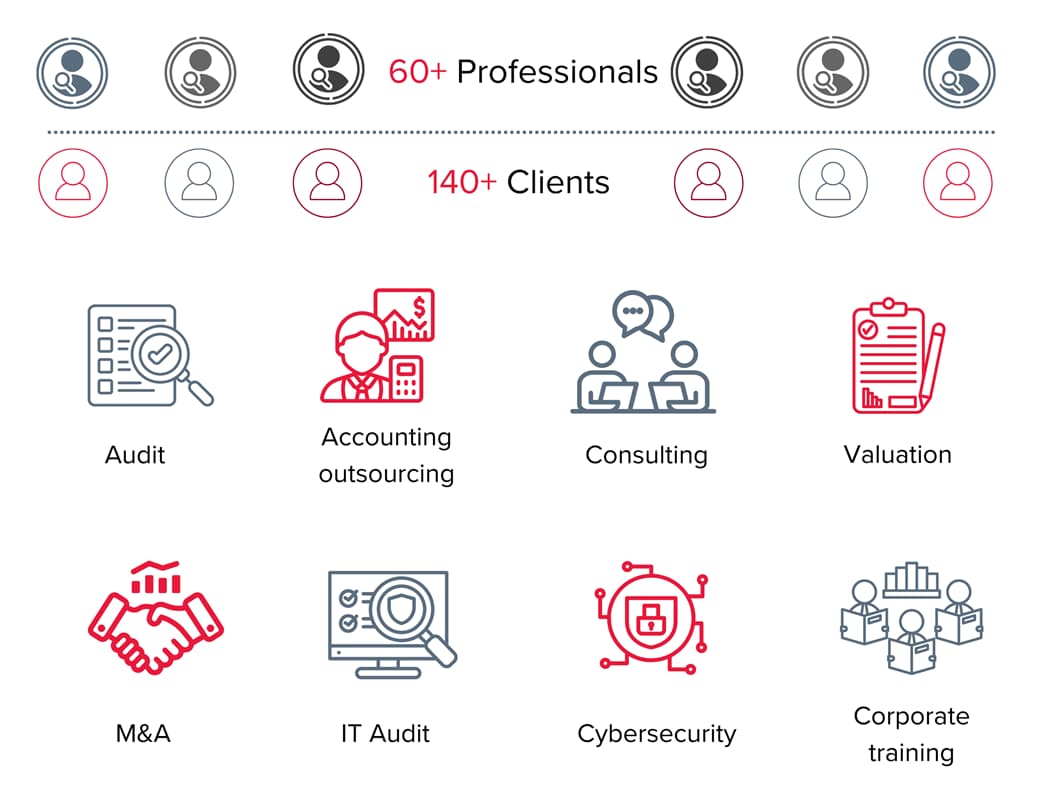
Sergiy Shtantsel
A key challenge currently is the transition from conventional energy sources to more sustainable alternatives, such as solar and wind power. This transition necessitates substantial investment in new technologies and infrastructure, as well as the development of new regulatory frameworks that promote sustainable development. Consequently, new investment opportunities are emerging, infrastructure is being modernised, and innovative technologies are being introduced across all sectors. The post-war period is set to be a pivotal stage for the industry’s revitalisation, with the potential to attract international capital and technological advancement.
In light of the global challenges posed by climate change and social responsibility, the implementation of ESG principles is becoming an imperative for businesses. By integrating these principles, businesses can enhance sustainability, reduce environmental impact, support communities, and ensure transparency in corporate governance.
In October 2024, the Cabinet of Ministers of Ukraine approved the Strategy for Implementation of Sustainable Development Reporting by Enterprises, which sets out new requirements for businesses in terms of transparency and responsibility in the field of ESG.
In the contemporary business landscape, environmental and social considerations have become non-negotiable. ESG principles are becoming an integral part of the development of the energy sector:
As part of the Natural Resources and Energy industry group, a webinar entitled “Sustainability Strategies Shaping the Future: Energy Security, Investment and Sustainable Development”, was held on 22 November 2024. During the event, leading experts discussed the key challenges of Ukraine’s energy sector, including the prospects for renewable energy development, human resource needs of the market and new EU requirements for sustainability reporting. The webinar has become an important platform for discussions on Ukraine’s integration into the European energy space and opportunities to attract investment in the sector.
At BDO Ukraine, we assist businesses to move forward with confidence. Our team of professionals supports companies operating in the natural resources and energy sectors with expert advice and practical solutions. We understand your needs and offer comprehensive services to help you manage and develop effectively:
In terms of the challenges and opportunities presented by the energy sector, our expertise lies in effective action. Our team comprises over 60 experienced professionals, who provide a personalised service to each client. We are trusted by 143+ companies in the sector, and we continue to expand our expertise.

BDO’s global network of 1,800 offices in 166 countries gives us access to best practice and innovation. In 2024, our global team expanded to nearly 120,000 individuals, and our global revenue surpassed USD 15 billion.
We integrate local expertise with international proficiency, enabling us to swiftly identify optimal solutions to even the most intricate challenges faced in the natural resources and energy sectors, encompassing metals, oil and gas, and renewable energy.
The Natural Resources and Energy team is dedicated to staying informed about changes and updates in the industry. They organise events that are relevant to the sector, analyse market trends, and prepare reports and materials that provide valuable insights. Please find below some examples of the reports and materials that have been prepared:
Should you be seeking a reliable partner to assist you in developing your business in the energy and natural resources sector, we are here to help. To discuss how we can help, please get in touch today.
FAQ
The natural resources and energy sector is critical to Ukraine’s economic growth and national security. It ensures energy independence, the development of renewable energy sources and the attraction of investment.
Among key global energy trends are:
• Decarbonisation — reducing CO₂ emissions and transitioning to a low-carbon economy.
• Green Transition — moving away from fossil fuels in favour of renewable energy sources (RES).
• Hydrogen energy — development of technologies for producing green hydrogen and its integration into energy systems.
• Digitalisation of energy — introduction of smart grids, smart meters and data management platforms.
• Energy storage systems — scaling up BESS to balance RES and improve grid stability.
Key challenges include the transition from traditional energy sources to environmentally friendly ones (solar and wind energy), ensuring energy security and the stability of energy networks during crises, the need for investment in technology and infrastructure modernisation (e.g. upgrading power grids to integrate renewable energy sources), and the creation of an effective regulatory environment.
ESG principles promote sustainable business development by reducing negative environmental impacts, supporting municipalities, and increasing corporate governance transparency, as well as reducing risks for investors and increasing companies’ competitiveness (e.g., reducing CO₂ emissions or certifying green products).
Ukrainian companies should proceed in stages:
• Assess the current ESG status — conduct an audit of environmental, social and governance practices.
• Select a standard:
o GRI — a flexible international standard for start-ups.
o ESRS — mandatory for large companies within the framework of European integration.
• Set up data collection — create internal systems for collecting non-financial information.
• Develop an ESG strategy — integrate sustainable development principles into the business model.
• Prepare for communication — learn to report transparently to investors, partners and society.
Digital transformation and smart grids provide for:
• Optimisation of energy consumption and reduction of losses in networks.
• Integration of renewable energy sources (RES) and increased energy system stability.
• Data transparency and real-time load management capabilities.
• Protection against cyber-attacks thanks to modern security systems.
BDO in Ukraine provides a range of professional services, including auditing and reporting in accordance with IFRS, tax risk consulting, sustainable development strategy design, digital transformation implementation, cybersecurity, and business process automation.
BDO in Ukraine combines local experience with international expertise, has over 60 experts in the field, works with more than 143 companies, and is part of a global network with 1,800 offices in 166 countries.
Glossary
Renewable energy sources (RES) — environmentally friendly energy sources (solar, wind, hydro, bioenergy) that help reduce harmful emissions and dependence on fossil fuels.
Energy independence — a country’s ability to meet its own energy needs without critical dependence on imported resources.
Energy security — a country’s ability to ensure a stable, reliable and uninterrupted supply of energy while protecting critical infrastructure from external and internal risks.
Environmental, Social, Governance (ESG principles) — sustainable development standards covering environmental responsibility, social impact and corporate governance.
Cyber security — a system for protecting data and information processes from cyber-attacks and unauthorised access.
IFRS (International Financial Reporting Standards) — international standards governing the preparation and presentation of financial statements, ensuring transparency and comparability of data.
Post-war period — a stage of economic and technological recovery in Ukraine after the war, opening up new opportunities for investment and modernisation of industries.
Natural resources — elements of the environment (minerals, water, forests, energy) that are used for the economic development of a country.
Sustainable development — a model of economic growth that is based on the needs of the current generation without harming future ones, with an emphasis on environmental friendliness, social responsibility and business transparency.
Digital transformation — the introduction of modern technologies, artificial intelligence and business process automation with the aim of improving company efficiency (e.g. smart grids, platforms for monitoring and managing energy consumption).
Hydrogen energy — technologies for the production, storage and use of hydrogen as a clean source of energy for the production of electricity, heat and transport.
Green transition — a global process of transitioning from fossil fuels to renewable energy sources and implementing sustainable energy practices.
Carbon neutrality — a state in which a company or country offsets all CO₂ emissions through reductions, the use of green technologies, or the purchase of emission reduction certificates.
Decarbonisation — reducing greenhouse gas emissions and transitioning to low-carbon technologies in energy production and consumption.
Smart grids — energy systems that use digital technologies to optimise energy distribution and consumption, integrate renewable energy sources, and manage load in real time.